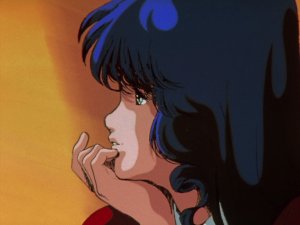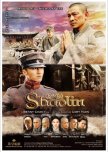Shaolin takes place during the fascinating (yet unfortunate) period in Chinese history known as the Warlord Era. Beginning in the dead center of World War I and continuing long after, these years saw military factions divide the mainland. Life during this time would have been turbulent, steeped in instability and the chaos of war.
Focusing on fallen warlord Hou Jie, the film turns its lens on this era. But more than a mere period piece or war film, Shaolin stands apart with its message uniquely infused with teachings of Buddhism. Concepts of karma and interconnection, love conquering hatred, peace trumping war, the importance of redemption and compassion, are enfolded by the story. Subtle symmetries are worked into the events of the plot, leaving the viewer much to feel and consider. My only issue would be that many characters seem more like symbols than actual people. However, this is forgivable in light of what they are meant to represent (and because one often ends up caring for them either way).
For those concerned about martial arts, they are more than present. Shaolin takes care to balance gentler sequences with ample action, showcasing weighty and finely-choreographed fights. You won't see slow motion or "wire-fu" here -- well, rather sparing amounts of the latter.
Andy Lau performs to the lofty standard assured by his name. For Shaolin to work as intended, whomever played Hou Jie needed to portray various elements believably. From the ruthless yet fatherly leader to a broken man seeking forgiveness and transformation -- Lau rises to the task, striking every chord. On the other hand, we have Nicholas Tse as duplicitous subordinate Cao Man. Cutting a dashing figure in his military uniform, this is an actor who brings power to a role much less developed than that of the lead. Though it should be easy to hate his villain, Tse effortlessly draws understanding (and better yet, the eye of the viewer) toward Cao Man.
Jackie Chan also appears in adorable cameo as the cooking monk, Wu Dao. His is a more than welcome guest appearance, delicate in inclusion yet still notable.
The best component of Shaolin might be its music. Gorgeous, sweeping orchestrations elevate each instance in which they're played. Most memorable among these auditory pleasures is the collaboration between composer Nicholas Errèra and Andy Lau: vocal "Wu (Enlightenment)". With a prayer-like intonation and the thoughtful lyrics penned by the actor himself, it is a song likely to stay with the viewer long after the film has ended.
Was this review helpful to you?























